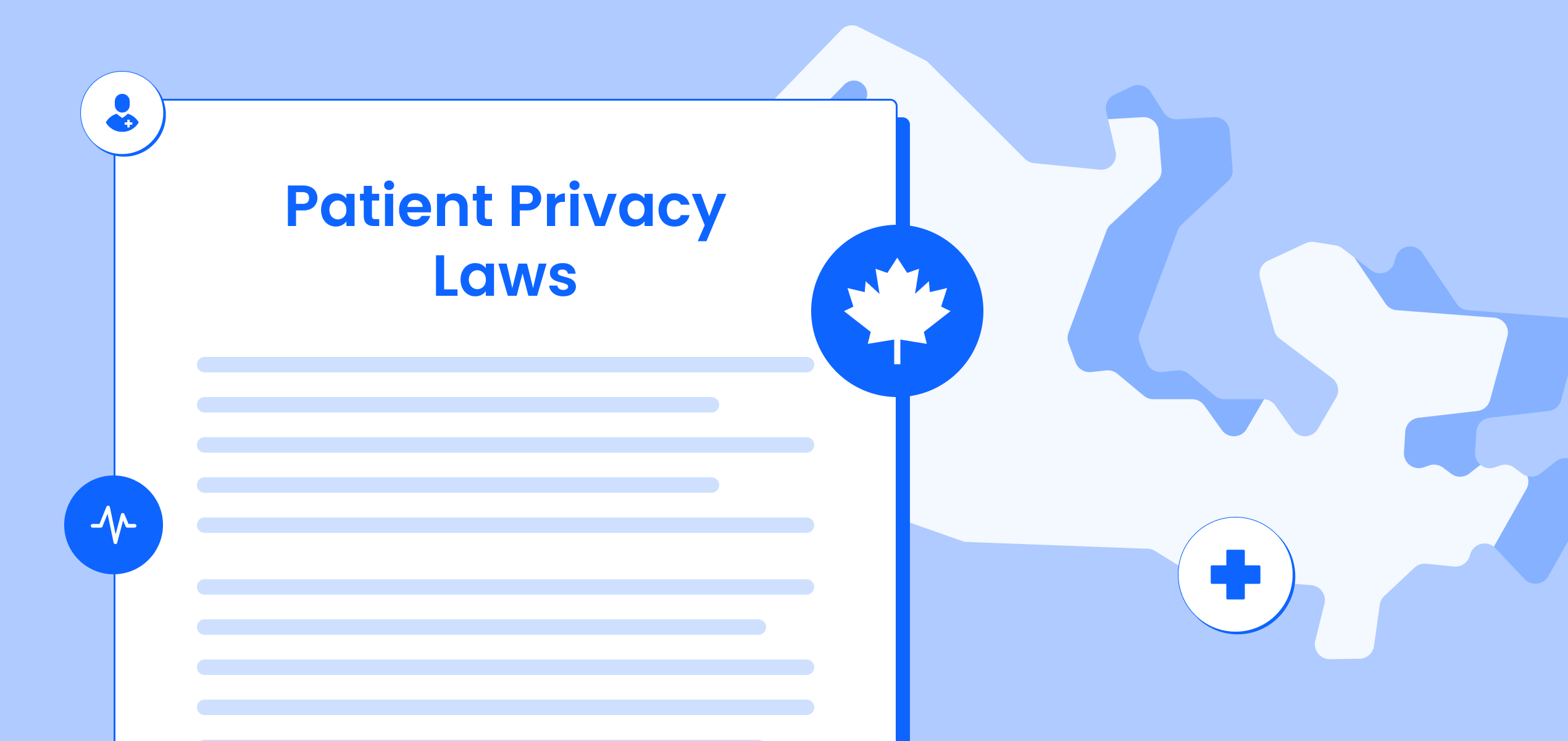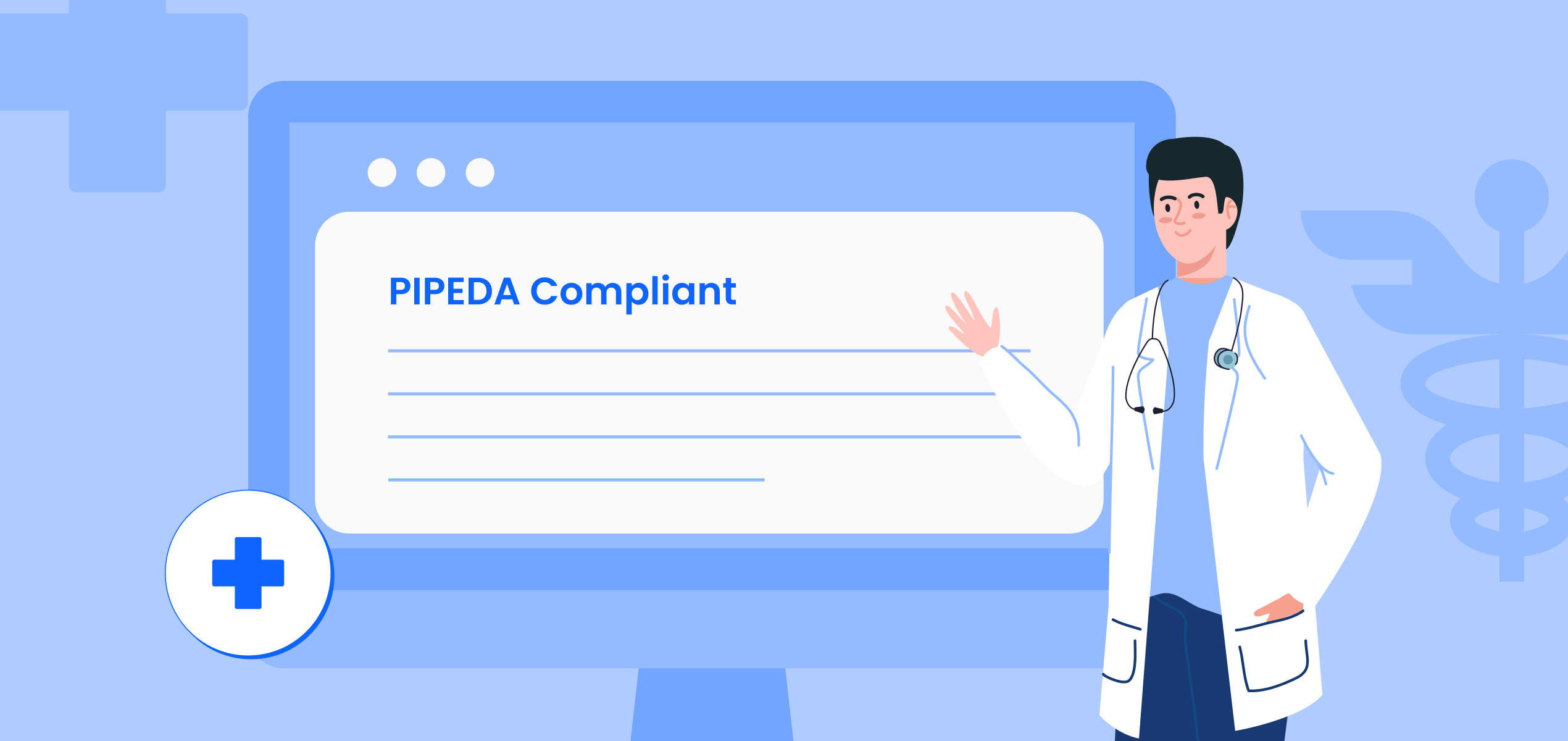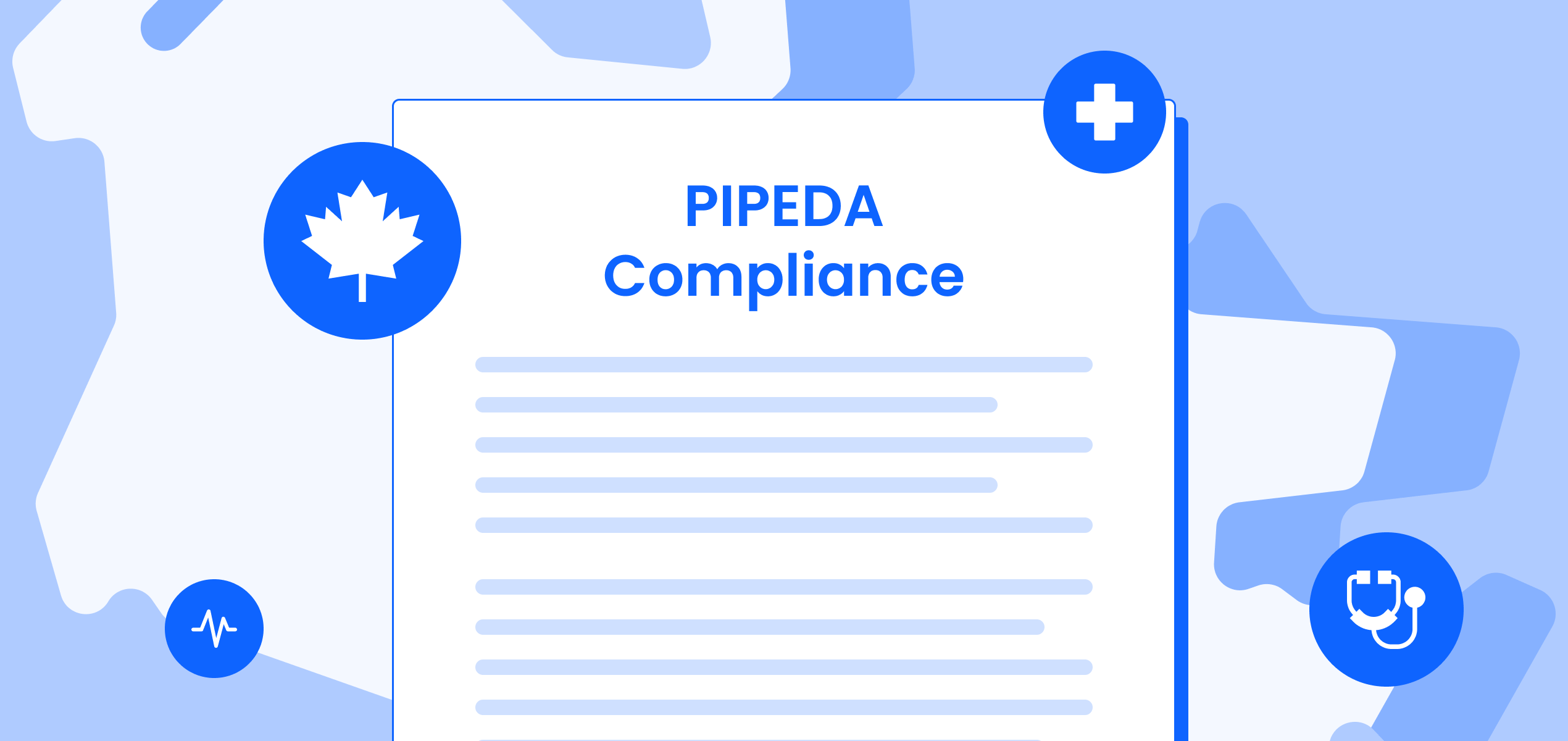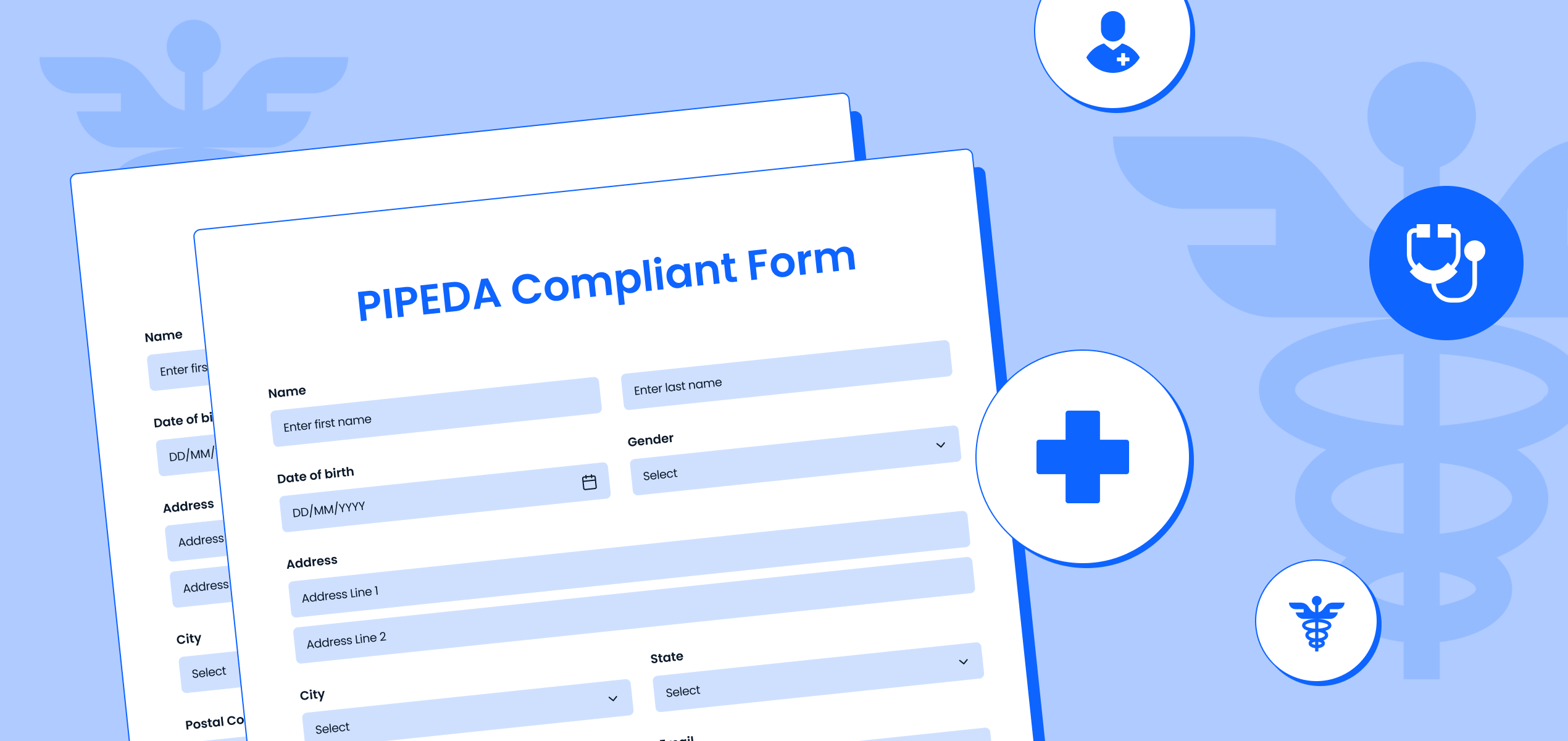By area, Canada is the world’s second-largest country. It comprises 10 provinces and 13 territories, which vary significantly in culture, population, and local governance. This diversity also extends to the patient privacy laws of each province, which implements its own unique set of rules along with federal standards.
Understanding these provincial differences is crucial for healthcare providers and patients alike. If you are looking for complex provincial laws related to healthcare data privacy explained easily, you have come to the right place.
In this blog, we help you understand province-specific nuances and how they are important for maintaining legal integrity and trust in Canada’s healthcare system. We will also try to examine the key features of each provincial law.
Let us begin by understanding the patient privacy landscape in Canada.
Understanding Patient Privacy Laws in Canada
Patient privacy law, in Canada, is regulated at both federal as well as provincial levels. This dual approach might seem a little complex in the beginning but it comes from the country’s constitutional framework. This framework holds provinces primarily responsible for healthcare while the federal government maintains a check on the same.
Key points of the federal-provincial division:
- Federal laws apply nationwide, while provincial laws are specific to each province
- Provinces can enact their own privacy laws, which may supersede federal law if deemed “substantially similar”
- Healthcare providers must often comply with both federal and provincial regulations
The Federal Legislation in Canada – PIPEDA
The Personal Information Protection and Electronic Documents Act (PIPEDA) is Canada’s primary federal privacy law. While PIPEDA was not specifically designed for healthcare, it has significant implications for patient privacy, especially in provinces without their own comprehensive health information legislation.
If you want to read about it in depth, you can do so here.
Now, let us dig deeper into the provincial regulation for healthcare in Canada.
Provincial Privacy Laws Overview
Here you can find the general framework and common principles across various provincial laws (e.g., consent, access to information, data security).
1. Alberta – Health Information Act (HIA)
Alberta’s HIA is specifically designed to protect health information of patients. Unique aspects include provisions for Alberta’s provincial electronic health record system and specific rules for data matching.
Its key features include:
- Detailed regulations for “custodians” of health information
- Rules for disclosure of health information for research purposes
- Mandatory breach reporting to the Privacy Commissioner
The HIA also includes a “collection notice” requirement, where custodians must inform individuals about the purpose, legal authority, and contact information for any questions about the collection.
2. British Columbia – Personal Information Protection Act (PIPA)
PIPA governs the collection, use, and disclosure of personal information by private sector organizations, including healthcare providers, in British Columbia.
The Personal Information Protection Act also includes strict rules on data storage and processing outside Canada. BC’s law requires personal information to be stored and accessed only in Canada unless specific conditions are met, which has significant implications for healthcare providers using cloud-based services or international data sharing.
Key features of PIPA include:
- Broad definition of personal information
- Balanced approach to individual rights and organizational needs
- Specific rules for employee personal information
3. Manitoba – Personal Health Information Act (PHIA)
Manitoba’s patient data privacy law, PHIA is notable for its comprehensive approach to electronic health records, including rules for remote access and audit trails. It also has specific provisions for the disclosure of personal health information to family members and for continuity of care purposes.
Some of its crucial features include:
- Specific regulations for handling electronic health records
- Detailed provisions on research use of health information
- Strict rules on information sharing between trustees
4. New Brunswick – Personal Health Information Privacy and Access Act (PHIPAA)
PHIPAA, the privacy law of New Brunswick, balances personal health information protection with the need for appropriate information sharing. PHIPAA is noteworthy for its approach to circle of care sharing, as it allows implied consent within healthcare teams. Additionally, it includes specific provisions for the protection of personal health information in educational institutions and for minors.
Its important features include:
- Detailed rules on information practices for custodians
- Provisions for a provincial electronic health record system
- Strict consent requirements with specific exceptions
Also Read: HIPAA Compliant Form Builder
5. Newfoundland and Labrador – Personal Health Information Act (PHIA)
Newfoundland and Labrador’s Personal Health Information Act is unique in its approach to substitute decision-makers and its provisions for the disclosure of information to prevent harm. It also includes specific rules for the use of personal health information for fundraising purposes by custodians.
Key features of PHIA include:
- Comprehensive coverage of health information privacy
- Specific provisions for disclosure to prevent harm
- Detailed rules for research use of personal health information
6. Northwest Territories – Health Information Act (HIA)
The Health Information Act has been established for the collection, use, disclosure, and protection of personal health information in the Northwest Territories.
The HIA is notable for its consideration of the unique healthcare needs in the North, including provisions for community health programs and telehealth services. It also includes specific rules for the collection and use of personal health information in public health surveillance.
The key features of this act include:
- Provisions for electronic health information systems
- Detailed rules for disclosure without consent
- Specific provisions for Aboriginal health programs
7. Nunavut – Access to Information and Protection of Privacy Act (ATIPPA)
Nunavut currently relies on the Access to Information and Protection of Privacy Act for health information privacy. While this policy is not limited to only patient health information, ATIPPA provides a framework for privacy protection. Nunavut is currently in the process of developing health-specific privacy legislation. The current law includes considerations for culturally appropriate application in Inuit communities.
ATIPPA’s Key features include:
- General privacy protections apply to public bodies
- Provisions for access to personal information
- Rules for collection, use, and disclosure of personal information
8. Ontario – Personal Health Information Protection Act (PHIPA)
PHIPA is Ontario’s comprehensive health privacy legislation. PHIPA also allows for the creation of “prescribed entities” that can collect and use personal health information for planning and management of the health system.
Its key features are:
- Detailed rules for electronic health records
- Mandatory breach reporting
- Strict consent requirements
- Significant penalties for non-compliance
Some of the other unique features in this act are provisions for health information network providers and a framework for shared electronic health records.
9. Prince Edward Island – Health Information Act (HIA)
PEI’s Health Information Act adopts a comprehensive approach to electronic health records and its provisions for health information banks. It also includes specific rules for the collection of personal health information from sources other than the individual.
Key features of the include:
- Detailed rules on consent and capacity
- Provisions for a provincial electronic health record
- Specific rules for disclosure for research purposes
10. Quebec – Act Respecting the Protection of Personal Information in the Private Sector
Quebec’s privacy law, Act Respecting the Protection of Personal Information, is known for its rigorous approach to privacy protection. It requires explicit consent for the collection, use, or disclosure of personal information, with limited exceptions. Applies to all private sector organizations, including healthcare providers in Quebec.
Its key features are:
- Stringent consent requirements
- Right to be forgotten
- Strict rules on cross-border data transfers
- High standards for data security
The law also grants individuals extensive rights to access and correct their personal information. Additionally, it imposes significant obligations on organizations to ensure data accuracy and security.
11. Yukon – Health Information Privacy and Management Act (HIPMA)
Yukon has the Health Information Privacy and Management Act for healthcare information protection. HIPMA is tailored to the unique needs of the Yukon’s healthcare environment and includes stringent guidelines for consent, data security, and the rights of individuals to access their health records.
Additionally, HIPMA incorporates modern considerations for electronic health records and information sharing, ensuring relevance in today’s digital age. It also includes specific rules for the use of personal health information for system planning and management.
Key features include:
- Detailed provisions on Yukon health information network
- Rules for cross-border transfer of health information
- Specific provisions for First Nations health programs
Understanding Provincial Health Data Laws
Canada’s diverse provincial healthcare data privacy laws may seem complex and daunting at first. However, these laws reflect each province’s impressive and unique approach towards prioritizing patient data privacy. Staying informed and updated is at the core of applying privacy practices and navigating healthcare privacy laws effectively.
MakeForms is one such platform that helps you meet requirements of all provincial patient privacy laws of Canada. It is an intuitive form building tool that helps you create stunning and feature-rich forms with robust security standards. Click here if you wish to know more about our AI-enhanced form building solution.
FAQs
No, each province has its own unique healthcare privacy laws in addition to federal regulations.
Most provincial laws include provisions for handling electronic health records and consent requirements.
Yes, healthcare providers often need to comply with both federal and provincial regulations.
Yes, many provinces have implemented penalties for non-compliance, with Ontario’s PHIPA specifically mentioning significant fines



